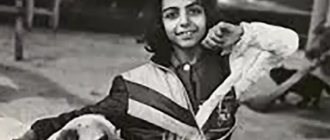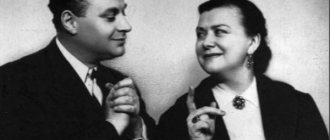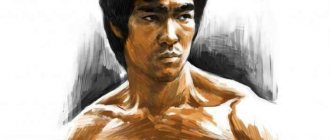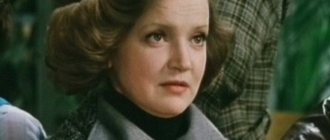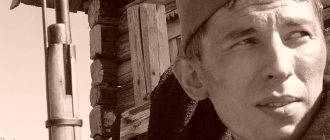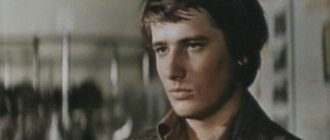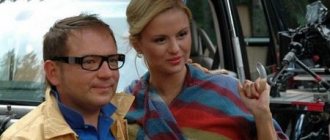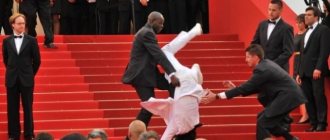Wikipedia has articles about other people with the surname Egorova.
Wikipedia has articles about other people with the same first and last name: Egorova, Natalya.
| Natalia Egorova | ||
| Birth name: | Natalya Sergeevna Egorova | |
| Profession: | actress | |
| Career: | 1970 - present time | |
| Awards: | ||
Natalia Sergeevna Egorova
(born August 22, 1950, Stavropol, RSFSR, USSR) - Soviet and Russian theater and film actress. People's Artist of the Russian Federation (2002)[1], laureate of the State Prize of the Russian Federation (2000)[2].
Biography
Natalia Egorova was born on August 22, 1950 in Stavropol into a military family.
Then the family moved to the city of Usolye-Sibirskoye, where she finished school.
In 1968-1969 she studied at the Irkutsk Theater School, and without finishing it she decided to go to Moscow.
In 1975 she graduated from the Moscow Art Theater School (course of Viktor Monyukov). After graduating from the studio school, she became an actress at the New Drama Theater, where she worked until 1984.
Since 1989, Natalya Egorova has been an actress at the Moscow Art Theater. A.P. Chekhov.
Since 2010, Natalya Egorova has been a director and teacher in the Workshop of N. L. Skorik.
Personal life
The 22-year-old actress met the rising star Andrei Mironov in 1966 in Riga. The man with whom Tatyana Egorova was linked by fate for 20 years played Holden Caulfield in the production of “The Catcher in the Rye” based on the work of the same name by Jerome Salinger. Tatyana, who had left the walls of “Pike” for a week, was brought into the cast of the play urgently - yesterday’s student had to learn the role of Sally Hayes 2 hours before going on stage.
Tatyana Egorova and Andrei Mironov in the play “The Catcher in the Rye”
This day - July 5, 1966 - became the starting point of a long and stormy romance, which lasted, according to Egorova, more than 20 years. In the infamous book of memoirs, the woman called herself Mironov’s secret wife, and Ekaterina Gradova and Larisa Golubkina as spouses “for appearance, for designation.”
Andrei Mironov died 21 years after meeting Egorova, performing on the same stage of the Riga Opera where they met. The head of the actor, who died 2 days later in neurosurgery at a local hospital, lay in Tatyana’s arms. She is the last one into whose eyes the artist, losing consciousness, looked.
Mikhail Dorn, Tatyana Egorova and Andrei Mironov
According to Egorova, they fell in love with Mironov at first sight. It had everything - passion, jealousy, numerous betrayals, and reconciliations. And an unborn child, whose birth Andrei did not want.
Tatyana Egorova said that Andrei’s mother, Maria Mironova, opposed the marriage and jealously protected her son from all the women who appeared in his life. Ironically, after the death of her son, Maria Vladimirovna became friends with Egorova, they became close people and even lived together at the dacha in Pakhra.
Books by Tatyana Egorova
13 years after the death of the artist, Tatyana Egorova published scandalous memoirs and called herself “Mironov’s widow.” In the book, she described her relationship with the star of the Soviet stage and cinema with a frankness that seemed shameless to some.
Offended by unflattering characteristics, colleagues and women with whom Mironov had affairs and marriages called Egorova’s memoirs an exaggeration and accused her of distorting facts, but the book received incredible success among readers and was sold in millions of copies. According to the actress, Andrei took Ekaterina Gradova to the registry office in a fit of rage after a heated quarrel, so the marriage soon fell apart.
Tatyana Egorova and her husband Sergei Shelekhov
Among those offended by his colleague who opened up in his memoirs was Alexander Shirvindt, who received a fair amount of punishment from Tatyana Egorova on the pages of the book. He called the artist Monica Lewinsky. But none of the colleagues angry with Egorova’s extreme frankness went to court with charges of libel.
In 2015, Tatyana Nikolaevna gave an interview to Dmitry Gordon, lifting the curtain on several more secrets of the life of the brilliant actor, telling about the morals of the theater backstage.
Tatyana Egorova and Dmitry Gordon
In the artist’s personal life there was not only a secret, but also an official marriage. Sergei Shelekhov, a businessman, philanthropist and writer, fell in love with Tatyana Egorova. At first I fell in love with this bright woman in absentia - after reading her memoirs. They soon met and got married, living in a happy marriage until Shelekhov’s death in 2014.
Creation
Director's works
- “The Snow Maiden” (Workshop of N. L. Skorik)
Roles in the theater
Moscow Art Theater named after. A. P. Chekhova
- “Silver Wedding” - Tonya
- “Commission” - Pankratova
- "Moscow Choir" - Era
- “Superfly” - Elena
- “The Deer and the Shalashovka” - Zybina
- "Taibele and her demon" - Genendel
- “And the light shines in the darkness...” - Saryntsova
- “The Cherry Orchard” by A. P. Chekhov - Varya
Film roles
- 1970 - City of First Love - Vika
- 1975 - Re-wedding - Lida
- 1975 - Eldest son - Nina Sarafanova
- 1975 - Channel - Anya
- 1976 - Two captains - Sasha Grigorieva
- 1978 - Urgent call
- 1978 - Risk Strategy
- 1979 - Second Spring - Evdokia Trofimovna Perevalova
- 1979 - Poem about wings
- 1980 - Waiting - young teacher Masha Pavlova
- 1980 — Flight with an astronaut
- 1980 - Flood
- 1981 - Storm Warning
- 1981 - Third Dimension
- 1981 - Parents' Day
- 1981 - Order: do not open fire - military doctor Ekaterina Ivanovna Belyaeva
- 1982 - I was born in Siberia...
- 1982 - Order: cross the border - military doctor Ekaterina Ivanovna Belyaeva
- 1982 - In love by choice - vacationer
- 1982 - The investigation is conducted by the Experts. He is here somewhere - Taisiya Nikolaevna Snezhkova
- 1983 - Statute of Limitations
- 1983 - Highway
- 1984 - Girl from the city - Daria Shalikhina
- 1985 - This is my village...
- 1986 - Playground
- 1986 - Arithmetic of Love
- 1987 - The Life of Klim Samgin - Margarita
- 1987 - My combat team
- 1988 - White Crows - investigator, police captain
- 1988 - Who is the singer married to? - Ksenia
- 1989 - Who should live in Russia... - Vera
- 1989 - I want to make a confession
- 1991 - A woman for everyone - Maria
- 1991 - Sin - Maria Lyashkovskaya
- 1992 - White clothes - Olga Sergeevna Pososhkova
- 1992 - Luna Park - Alena
- 1993 - Alaska Kid - Maggie
- 1993 - Reluctant Superman, or Erotic Mutant - Olga
- 1994 - I'm free, I'm nobody's
- 1995 - Wolf's Blood
- 1997 - Tsarevich Alexei - Catherine I
- 1999 - Barack
- 1999 — Russian revolt
- 2000 - Secrets of palace coups. Films 1-2 - Catherine I
- 2001 - Detectives - Anna Mikhailovna
- 2001-2004 - Truckers - Nina Ivanovna, wife of Fyodor Ivanovich
- 2005 - Children of Vanyukhin
- 2001 - Happy new happiness! 2. Kiss in the cold - nurse Nadya, Vera’s friend
- 2007 - You can’t catch us - Marysheva
- 2007 - Full Breath - Aunt Katya
- 2011 - Secrets of palace coups. Film 8th. Hunting for the princess. Part 1 - Anna Ioannovna
- 2012 - Truckers 3 - Nina Ivanovna, wife of Fyodor Ivanovich
- 2013 - Secrets of palace coups. Film 8th. Hunting for the princess. Part 2 - Anna Ioannovna
- 2014 - Kuprin. Pit - Anna Markovna
Filmography
- 1965 – “The Month of May”
- 1969 – “Two Comedies by Branislav Nusic”
- 1971 – “When the Sea Laughs”
- 1973 – “Crazy Day, or The Marriage of Figaro”
- 1974 – “Rise and Shine”
- 1976 - “Well, audience!”
- 1977 – “Office Romance”
- 1977 – “Foam”
- 1979 – “Caesar and Cleopatra”
- 1980 – “Once Upon a Time, Twenty Years Later”
- 1987 – “Under the sign of the Red Cross”
- 1987 – “Friend”
- 1991 – “Armavir”
- 1998 – “Cool Cops”
- 2010 – “Divination by Candlelight”
Titles and awards
- Honored Artist of Russia (1994)[4]
- People's Artist of Russia (2002)[1]
- Laureate of the State Prize of the Russian Federation (2001, for the film “Barack”)[2].
- Prize of the Constellation Film Festival “For Best Supporting Actress” (2000, for the film “Barack”)
- Golden Aries Award for Best Supporting Actor (2000, for the film Russian Riot)[5]
- Prize for best actress at the film festival “Window to Europe” in Vyborg (2000, for the film “Secrets of palace coups. Russia. Century XVIII” Film 1: “Testament of the Emperor”)
- Prize for best actress at the film festival “Vivat Cinema of Russia!” in St. Petersburg (2001, for the film “Secrets of palace coups. Russia. Century XVIII” Film 1: “Testament of the Emperor”)
- Prize “Recognition” for a gallery of bright screen images at the film festival “Vivat Cinema of Russia!” in St. Petersburg (2016)[6]
Notes
- ↑ 12
[graph.document.kremlin.ru/page.aspx?732224 The honorary title was awarded by Decree of the President of Russia No. 1149 of October 10, 2002] - ↑ 12
[graph.document.kremlin.ru/page.aspx?826000 Decree of the President of the Russian Federation dated June 6, 2001 No. 655 “On awarding State Prizes of the Russian Federation in the field of literature and art of 2000”] - [mkrf.ru/press-tsentr/novosti/ministerstvo/deyateli-kultury-rossii-v-podderzhku-pozitsii-prezidenta-po-ukraine-i-krymu Russian cultural figures - in support of the President’s position on Ukraine and Crimea] // Official website of the Ministry of Culture of the Russian Federation
- [document.kremlin.ru/doc.asp?ID=081380 The honorary title was awarded by Decree of the President of Russia No. 1450 of July 6, 1994]
- [2011.russiancinema.ru/index.php?e_dept_id=1&e_person_id=307 Natalya Egorova in the Encyclopedia of Russian Cinema]
- [tass.ru/kultura/3298383 The film “Insight” by Alexander Kott was awarded the Grand Prix of the XXIV Festival “Vivat Cinema of Russia!”]. TASS (May 19, 2016). Retrieved May 22, 2020.
Tatyana Egorova: in the shadow of Andrei Mironov
The romance between Tatiana Egorova and Andrei Mironov was full of events and experiences. Breakups, meetings, betrayals, an unborn child - it all happened.
Photo: Instagram @ andrey_mironov_0703
According to the author of the book, the influence of the actor’s mother prevented the official reunion of the lovers. Maria Vladimirovna was very jealous of any woman surrounded by her son.
Excerpt characterizing Egorova, Natalya Sergeevna
“I’m used to something sweet. Excellent raisins, take them all,” he remembered. And the Cossacks looked back in surprise at the sounds similar to the barking of a dog, with which Denisov quickly turned away, walked up to the fence and grabbed it. Among the Russian prisoners recaptured by Denisov and Dolokhov was Pierre Bezukhov. There was no new order from the French authorities about the party of prisoners in which Pierre was, during his entire movement from Moscow. This party on October 22 was no longer with the same troops and convoys with which it left Moscow. Half of the convoy with breadcrumbs, which followed them during the first marches, was repulsed by the Cossacks, the other half went ahead; there were no more foot cavalrymen who walked in front; they all disappeared. The artillery, which had been visible ahead during the first marches, was now replaced by a huge convoy of Marshal Junot, escorted by the Westphalians. Behind the prisoners was a convoy of cavalry equipment. From Vyazma, the French troops, previously marching in three columns, now marched in one heap. Those signs of disorder that Pierre noticed at the first stop from Moscow have now reached the last degree. The road along which they walked was littered with dead horses on both sides; ragged people lagging behind different teams, constantly changing, then joined, then again lagged behind the marching column. Several times during the campaign there were false alarms, and the soldiers of the convoy raised their guns, shot and ran headlong, crushing each other, but then they gathered again and scolded each other for their vain fear. These three gatherings, marching together - the cavalry depot, the prisoner depot and Junot's train - still formed something separate and integral, although both of them, and the third, were quickly melting away. The depot, which had initially contained one hundred and twenty carts, now had no more than sixty left; the rest were repulsed or abandoned. Several carts from Junot's convoy were also abandoned and recaptured. Three carts were plundered by the backward soldiers from Davout's corps who came running. From conversations of the Germans, Pierre heard that this convoy was put on guard more than the prisoners, and that one of their comrades, a German soldier, was shot on the orders of the marshal himself because a silver spoon that belonged to the marshal was found on the soldier. Of these three gatherings, the prisoner depot melted the most. Of the three hundred and thirty people who left Moscow, there were now less than a hundred left. The prisoners were even more of a burden to the escorting soldiers than the saddles of the cavalry depot and Junot's baggage train. Junot’s saddles and spoons, they understood that they could be useful for something, but why did the hungry and cold soldiers of the convoy stand guard and guard the same cold and hungry Russians who were dying and lagged behind on the road, whom they were ordered to shoot? not only incomprehensible, but also disgusting. And the guards, as if afraid in the sad situation in which they themselves were, not to give in to their feeling of pity for the prisoners and thereby worsen their situation, treated them especially gloomily and strictly. In Dorogobuzh, while the convoy soldiers, having locked the prisoners in a stable, went off to rob their own stores, several captured soldiers dug under the wall and ran away, but were captured by the French and shot. The previous order, introduced upon leaving Moscow, for captured officers to march separately from the soldiers, had long been destroyed; all those who could walk walked together, and Pierre, from the third transition, had already united again with Karataev and the lilac bow-legged dog, which had chosen Karataev as its owner. Karataev, on the third day of leaving Moscow, developed the same fever from which he was lying in the Moscow hospital, and as Karataev weakened, Pierre moved away from him. Pierre didn’t know why, but since Karataev began to weaken, Pierre had to make an effort on himself to approach him. And approaching him and listening to those quiet moans with which Karataev usually lay down at rest, and feeling the now intensified smell that Karataev emitted from himself, Pierre moved away from him and did not think about him. In captivity, in a booth, Pierre learned not with his mind, but with his whole being, life, that man was created for happiness, that happiness is in himself, in the satisfaction of natural human needs, and that all unhappiness comes not from lack, but from excess; but now, in these last three weeks of the campaign, he learned another new, comforting truth - he learned that there is nothing terrible in the world. He learned that just as there is no situation in which a person would be happy and completely free, there is also no situation in which he would be unhappy and not free. He learned that there is a limit to suffering and a limit to freedom, and that this limit is very close; that the man who suffered because one leaf was wrapped in his pink bed suffered in the same way as he suffered now, falling asleep on the bare, damp earth, cooling one side and warming the other; that when he used to put on his narrow ballroom shoes, he suffered in exactly the same way as now, when he walked completely barefoot (his shoes had long since become disheveled), with feet covered with sores. He learned that when, as it seemed to him, he had married his wife of his own free will, he was no more free than now, when he was locked in the stable at night. Of all the things that he later called suffering, but which he hardly felt then, the main thing was his bare, worn, scabby feet. (Horse meat was tasty and nutritious, the saltpeter bouquet of gunpowder, used instead of salt, was even pleasant, there was not much cold, and during the day it was always hot while walking, and at night there were fires; the lice that ate the body warmed pleasantly.) One thing was hard. at first it’s the legs. On the second day of the march, after examining his sores by the fire, Pierre thought it impossible to step on them; but when everyone got up, he walked with a limp, and then, when he warmed up, he walked without pain, although in the evening it was even worse to look at his legs. But he did not look at them and thought about something else. Now only Pierre understood the full power of human vitality and the saving power of moving attention invested in a person, similar to that saving valve in steam engines that releases excess steam as soon as its density exceeds a known norm. He did not see or hear how the backward prisoners were shot, although more than a hundred of them had already died in this way. He did not think about Karataev, who was weakening every day and, obviously, was soon to suffer the same fate. Pierre thought even less about himself. The more difficult his situation became, the more terrible the future was, the more, regardless of the situation in which he was, joyful and calming thoughts, memories and ideas came to him. On the 22nd, at noon, Pierre was walking uphill along a dirty, slippery road, looking at his feet and at the unevenness of the path. From time to time he glanced at the familiar crowd surrounding him, and again at his feet. Both were equally his own and familiar to him. The lilac, bow-legged Gray ran merrily along the side of the road, occasionally, as proof of his agility and contentment, tucking his hind paw and jumping on three and then again on all four, rushing and barking at the crows that were sitting on the carrion. Gray was more fun and smoother than in Moscow. On all sides lay the meat of various animals - from human to horse, in varying degrees of decomposition; and the walking people kept the wolves away, so Gray could eat as much as he wanted. It had been raining since the morning, and it seemed that it would pass and clear the sky, but after a short stop the rain began to fall even more heavily. The road, soaked by rain, no longer absorbed water, and streams flowed along the ruts. Pierre walked, looking around, counting steps in threes, and counting on his fingers. Turning to the rain, he internally said: come on, come on, give it more, give it more. It seemed to him that he was not thinking about anything; but far and deep somewhere his soul thought something important and comforting. This was something of a subtle spiritual extract from his conversation with Karataev yesterday.
